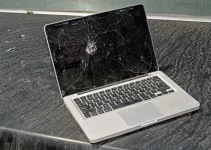If you’re experiencing a sudden slowdown in your laptop’s performance, you’re likely wondering why my laptop is slow suddenly.
There can be a number of reasons for this frustrating issue, including hardware problems, insufficient RAM, a full hard drive, outdated software, and malware or viruses.
In this article, we’ll delve into the possible causes of a sudden slowdown in laptop performance and provide troubleshooting steps to help you diagnose and fix the problem.
Investigating the Causes of a Sudden Slowdown in Laptop Performance: Why My Laptop Is Slow Suddenly?”
Possible causes of a sudden slowdown
There are several potential causes for a sudden slowdown in laptop performance. Some of the most common include:
- Overheating: Laptops can become sluggish if they become too hot. This can be caused by a number of factors, including dust or debris clogging the cooling vents, a faulty fan, or simply using the laptop for an extended period of time without allowing it to cool down.
- Insufficient RAM: Random Access Memory (RAM) is a type of computer memory that stores data temporarily while the laptop is running. If your laptop doesn’t have enough RAM, it can struggle to keep up with the demands of running multiple programs at once, resulting in a slowdown.
- Hard drive capacity: If your hard drive is almost full, it can affect the performance of your laptop. When the hard drive is almost full, the laptop has to work harder to access and write data, which can slow down overall performance.
- Outdated hardware or software: If your laptop’s hardware or software is outdated, it may not be able to keep up with the demands of modern applications and tasks. This can result in a slowdown in performance.
- Malware or viruses: Malware or viruses can infect your laptop and cause it to slow down or crash. These malicious programs can consume system resources and disrupt normal operations, leading to a sudden slowdown.
Read Also: Can A Laptop Be Tracked After Factory Reset
How to troubleshoot and fix a sudden slowdown
If your laptop is experiencing a sudden slowdown, there are several steps you can take to troubleshoot and fix the issue:
- Check for overheating: One of the first things to check for is overheating. If your laptop feels hot to the touch or the fan is constantly running, it could be a sign that it’s overheating. To fix this issue, try cleaning the cooling vents, making sure there’s good airflow around the laptop, and avoiding using the laptop on soft surfaces like a bed or couch that can block the vents.
- Check the RAM: If your laptop doesn’t have enough RAM, it can struggle to keep up with the demands of running multiple programs at once. To check how much RAM your laptop has and whether it’s sufficient, you can use the Windows Task Manager (Ctrl + Alt + Delete) or a third-party system information tool. If you find that you’re low on RAM, you may be able to improve performance by closing unnecessary programs or upgrading the RAM on your laptop.
- Check the hard drive capacity: If your hard drive is almost full, it can affect the performance of your laptop. To check the capacity of your hard drive, you can use the Windows File Explorer or a third-party disk management tool. If you find that your hard drive is almost full, you can try freeing up space by deleting unnecessary files, uninstalling unused programs, and moving large files to an external hard drive or cloud storage service.
- Update hardware and software: If your laptop’s hardware or software is outdated, it may not be able to keep up with the demands of modern applications and tasks. This can result in a slowdown in performance. To fix this issue, make sure you have the latest drivers and software updates installed on your laptop.”
- Updating your laptop’s hardware and software can help improve its performance and fix any issues that may be causing a slowdown. This includes updating the operating system, drivers, and applications to the latest version. You can usually check for and install updates through the settings menu or by visiting the manufacturer’s website.
- Check for malware or viruses: Malware or viruses can infect your laptop and cause it to slow down or crash. If you suspect that malware or a virus may be causing the slowdown, you should scan your laptop with an antivirus program to remove any malicious software. You can also use a malware removal tool to scan for and remove any malware that may have infected your system.
Read Also: How To Remove White Spot on Laptop Screen
FAQS
Why is my gaming laptop running slowly all of a sudden?
Too many programs running at once consume processing power and slow down the PC, which is a common reason for slow computers. Your computer may run slowly for various reasons, including malware infection, hardware problems, high memory utilisation, etc.
How do I fix my slow computer all of a sudden?
How to improve computer speed
- Determine which programmes are making your PC sluggish.
- Verify your internet connection and browser.
- Clean up the files on your hard drive.
- Identify the hardware that can make your computer run slowly.
- Switch to an SSD for storage.
- Increase the memory (RAM)
- Locate upgrades that are 100 per cent assured to work.
Why is Windows 10 so slow all of a sudden?
If your Windows 10 computer feels slow, it could be because you have too many programmes running in the background that you rarely or never use. If you stop them from running, your PC will work better.
How can I get my PC to run games faster?
- Switch to game mode. Windows is already made in a way that makes it easy to play games.
- Disable notifications.
- Make sure Hardware-accelerated GPU scheduling is turned on.
- Make changes to get the best results.
- Turn off the “pointer precision” feature.
- Update your drivers.
- Make Nvidia G-Sync work.
- Change the refresh rate of your screen.
Why is my gaming laptop suddenly slow?
There could be multiple causes for your gaming laptop’s abrupt slowness. Low storage space, old software, too many apps running simultaneously, spyware or viruses, or hardware issues could be to blame. Checking these parameters and attempting troubleshooting or seeking professional assistance to resolve the issue is advised.
Conclusion
In conclusion, a sudden performance decrease in a laptop can be caused by various factors, from hardware faults to malware infections.
It is essential to identify the root cause and take the necessary steps to resolve the issue. By following the methods indicated in this article, such as checking for overheating, inadequate RAM, a full hard drive, obsolete hardware or software, and malware or viruses, you may easily diagnose and cure the issue and restore the performance of your laptop.
Remember to maintain and upgrade your laptop regularly to prevent future sluggishness and preserve its optimal performance.
Read More:
How to Fix Black Spot on Laptop Screen





